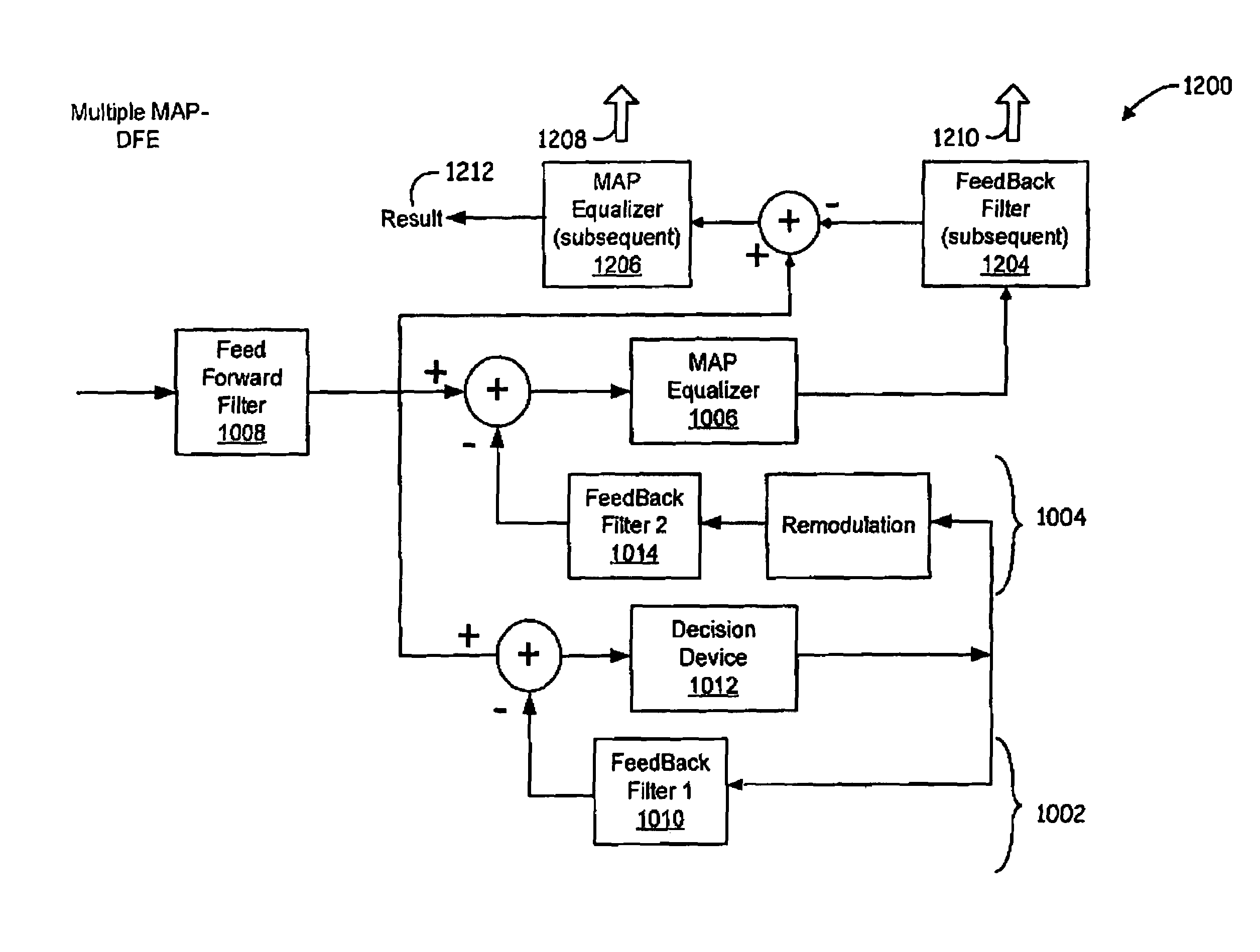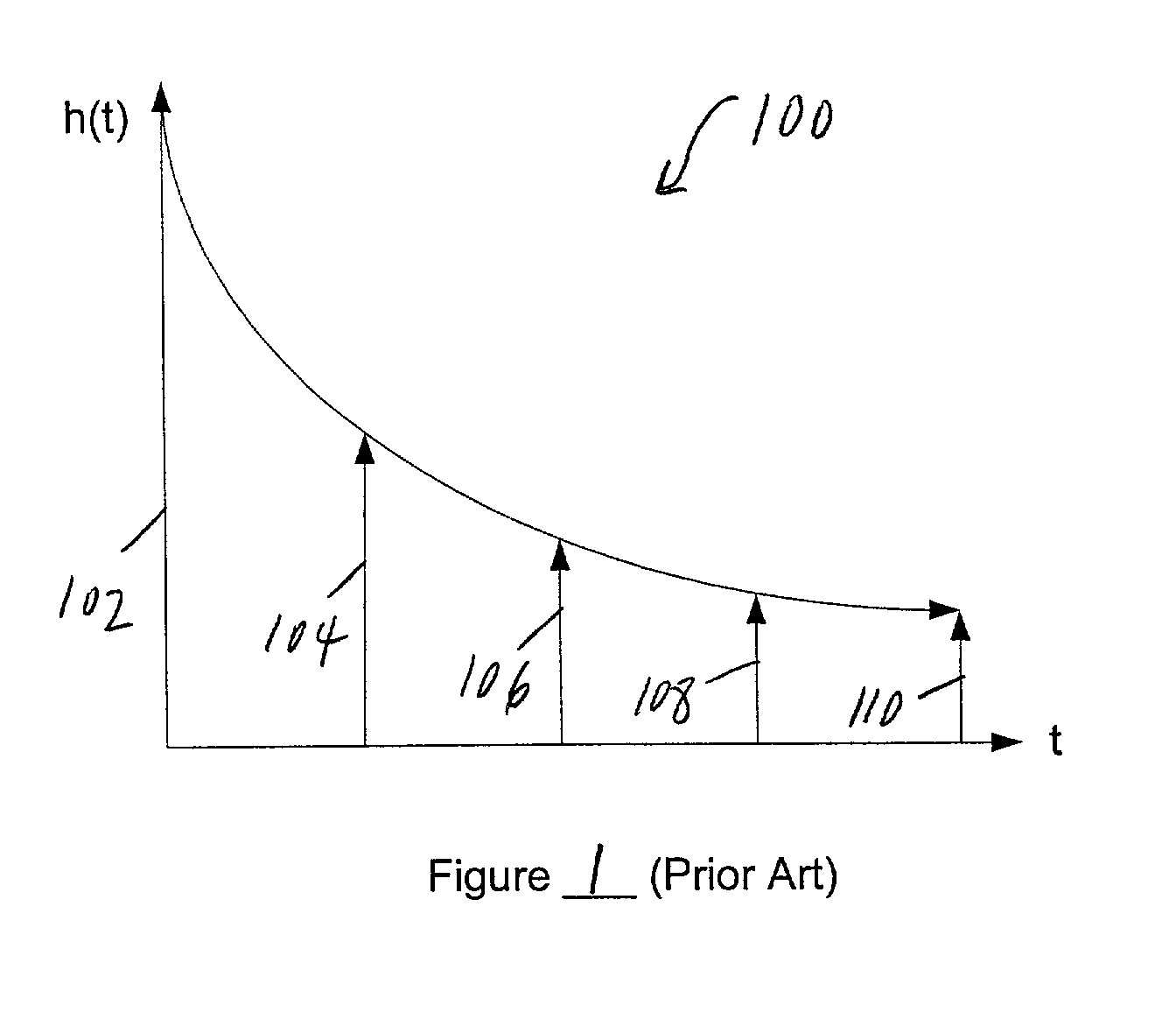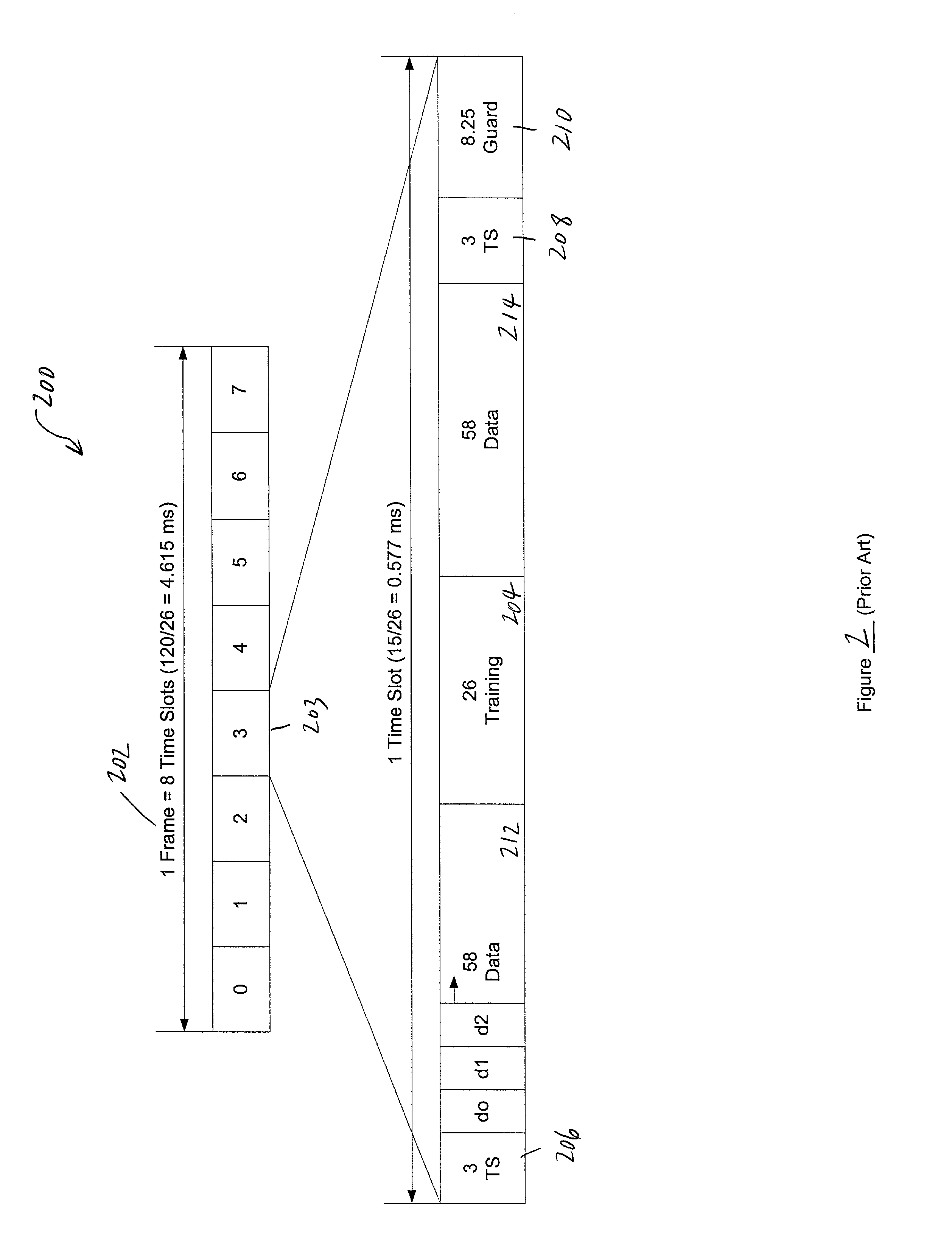High performance equalizer having reduced complexity
a technology of complexity and equalizer, applied in the field of communication system channel equalization improvement methods and apparatus, can solve the problems of receiver sensitivity being affected, the use of mlse, etc., and achieve the effect of reducing the complexity of an equalizer, reducing the effective delay spread of the channel, and reducing the overall complexity of the equalizer
- Summary
- Abstract
- Description
- Claims
- Application Information
AI Technical Summary
Benefits of technology
Problems solved by technology
Method used
Image
Examples
Embodiment Construction
[0032]The present invention is described below in terms of certain preferred embodiments, and representative applications. The apparatus and processing methods are applicable to any wireless or wireline communication system where an equalizer is used to eliminate the ISI effects of the channel.
[0033]A representative application of the invention is the EDGE system, and a preferred embodiment is described below. Since radio spectrum is a limited resource, shared by all users, a method must be devised to divide up the bandwidth among as many users as possible. The GSM / EDGE system uses a combination of Time- and Frequency-Division Multiple Access (TDMA / FDMA). The FDMA part involves the division by the frequency of the (maximum) 25 MHz bandwidth into 124 carrier frequencies spaced 200 kHz apart. One or more carrier frequencies is assigned to each base station. Each of these carrier frequencies is then divided in time, using a TDMA scheme. The fundamental unit of time in this TDMA scheme ...
PUM
 Login to View More
Login to View More Abstract
Description
Claims
Application Information
 Login to View More
Login to View More - R&D
- Intellectual Property
- Life Sciences
- Materials
- Tech Scout
- Unparalleled Data Quality
- Higher Quality Content
- 60% Fewer Hallucinations
Browse by: Latest US Patents, China's latest patents, Technical Efficacy Thesaurus, Application Domain, Technology Topic, Popular Technical Reports.
© 2025 PatSnap. All rights reserved.Legal|Privacy policy|Modern Slavery Act Transparency Statement|Sitemap|About US| Contact US: help@patsnap.com



